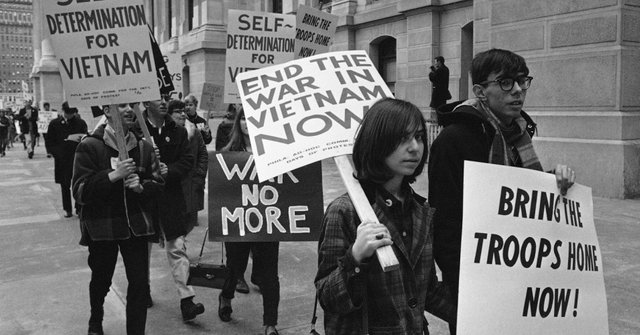Information War : Conspiracy Between Germany - United States
Tidal Relations Germany-United States
More espionage activities of NSA and CIA secret services in Germany are revealed. Now the German-United States relationship is again facing a tough test.
After losing World War II, Germany experienced economic and political ruin. In those days, the United States emerged as a savior. Whereas at that time, some circles suggested that the German industry was left alone slumped back to the agricultural country. But the United States government decided to help rebuild the German economy. The Marshall-Plan economic aid program is worth more than $12 billion.
After World War II, Germany was divided into four military zones each controlled by the Soviet Union, Britain, France and the United States. In 1948, three western alliances, namely Britain, France and the United States carried out currency reforms in the territory it controlled, which later became the Federal Republic of West Germany. While the eastern region was under the influence of the Soviet Union and then established its own country, East Germany.
Thanks to US assistance, the economy in West Germany began to grow rapidly. The proximity of Germany and the US was marked by the visit of President John F. Kennedy at that time in 1963 which was greeted enthusiastically by the Germans, especially by the citizens of Berlin.
Vietnam War protests
The image of the US in Germany began to fade after the media more and more about the Vietnam war. The news extends especially with the development of television broadcasting technology. In the late 1960s to early 1970s, Germany was hit by a wave of student protests denouncing US involvement in the Vietnam war.
The Vietnam War primarily changed the image of the US in Germany, said Udo Hebel, Professor of American Studies at the University of Regensburg.
Back again in the 50s, America became a kind of positive role model compared to the dull German picture. Later in the 60s the situation changed, the Germans began to see a bad face of the US.
But according to Hebel, the positive picture of America remains strong. So there is indeed a paradoxical picture.
And in 1979, the German government decided the deployment of NATO missiles in Germany, which received strong opposition from the younger generation. At that time, more and more anti-American sentiment was widespread among young politicians. They regard America as a very dangerous imperialistic power.
Approach after September 11 terror
Following the September 11, 2001 terror attacks in New York and Washington, sympathy and solidarity with the United States came back strong. The German government then under Chancellor Gerhard Schröder even planned unlimited solidity.
But two years later, it was Gerhard Schröder who strongly condemned George W. Bush's policy of attacking Iraq. Germany was openly against the war and did not want to get involved.
Currently, German and US relations are disrupted after the NSA and CIA espionage activities in Germany are revealed. The latest case is the unfolding of the CIA's secret service effort to recruit members of the German Bundeswehr military as a rear-view mirror.
The German government then publicly asked the CIA Coordinator in Berlin to return to his country immediately, a very rare event among partner countries.
But Udo Hebel believes the German and US relations will recover. Keep in mind, there is a history of ups and downs in relations between the two countries. So the current tense situation can also change again quickly.
In essence, this incident is not only happening between Germany and America alone, but many occur in other parts of the world that often occur such a truce. Keep in mind that every country that has become a partner there must be elements of mutual use between countries.



Curated for #informationwar (by @openparadigm)

Relevance: Surveillance
Our Purpose